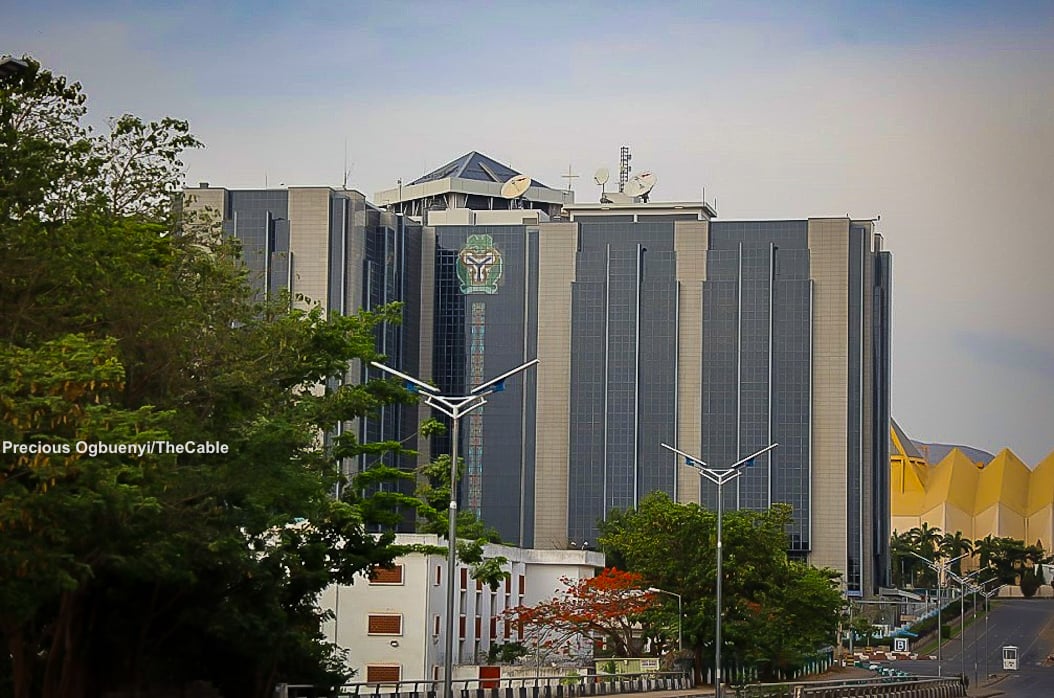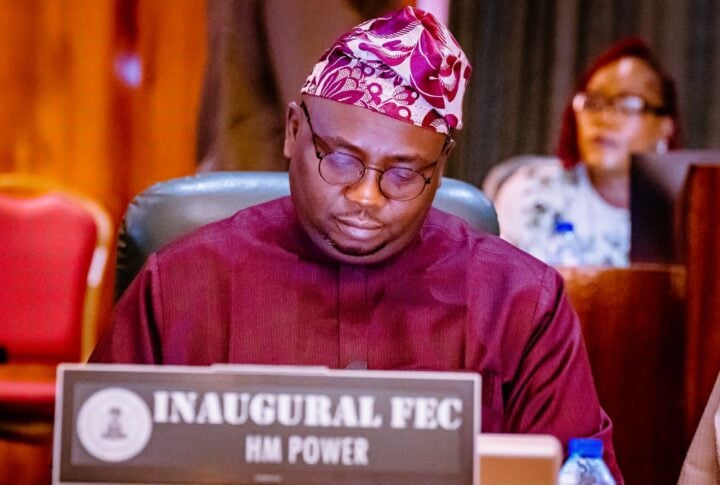Despite the humongous amount of revenue accruing to the State governments from the federation’s account since president Bola Tinubu came on board, being a State Governor might, after all, not be the most attractive of jobs in Nigeria. This is as the resentment of the common man on the street, towards some of them, grows because of what they term, “insensitivity to the plight of an average Nigerian under the current harsh living condition.” Things have been very hard on the masses, since the total removal of fuel subsidies on virtually everything, starting from the first day of president Tinubu in office, when he announced that (petrol) is gone. That was about his first policy pronouncement, following his being sworn-in, as the President, and Commander-in-Chief of the Armed Forces of the Federal Republic of Nigeria on May 29, 2023. “Subsidy is gone,” said the president, at the Eagle’s Square – a statement which was later found not to be a part of his prepared inaugural speech.
Ever since then, Nigerians have had no respite, socio-economically speaking. Inflation has been working on all four. Prices of foodstuffs have gone out of the roof, ditto for other essential services, like health, education among others. The incandescent policy of total subsidy removal (especially, of fuel) was followed up with the volatility of floating the Naira against the major currencies like the Euros, Dollars, and Pound Sterling. The combination has proven to be very deadly on the living condition of the masses, as purchasing power of people’s incomes became eroded by the unabated hyperinflation. The street is not smiling at all, as we say in Nigerian parlance.
Last week, I monitored a local Radio (Sobi FM) program in Ilorin the Kwara State capital. It was a daily newspaper review, a morning show, with a phone-in segment for the listeners to express their views on any trending news of their choice. On this program, one of the listeners called-in to express his frustration at how the Governors, according to him, “craftily removed themselves from the equation,” when it comes to discussing who is responsible for what, on how the masses would be saved from the current economic hardship in the land. He went on to remind the anchors of the program that there are certain things Nigerians would no longer tolerate from the political office holders, especially the Governors. He emphasised how much, by which the amount accruing to each of the 36 State Governments monthly, from the Federation Account Allocation Committee (FAAC) has increased (about 100%). Furthermore, he said, “it has more than doubled over the last 10 months.” Those Governors who were complaining about not getting more than ₦5 billion monthly, pre – May 20, 2023, now receive over ₦10 billion. Yet, the jackpot, as a result of the windfall coming from subsidy removal, has not reflected in the quality of service delivery by the State Governments to the taxpayers. The man said, “Nigerians are tired of the usual hanky-panky by the Governors who, embark on” white elephant projects” like, airports, flyovers, where for instance, a well-constructed drainage system is what is actually needed.”
After listening to the caller, I critically analysed all he said, and couldn’t, but agree with him in its totality, on what Nigerians are no longer ready to listen to, from our leaders, the governors in this case, and what they need to know.
Advertisement
Most of the Governors who had reduced the instruments of governance to palliatives packages, such as a 10 kg bag of wheat, rice, Semo Vita, 4 litres of vegetable oil, and a packet of noodles, need to know that our problem is beyond 10 kg package of assorted food items that won’t feed a family of four, for a day. What they must know is, “the deliberate, and elaborate actionable plan they have, geared towards boosting food production, in order to crash the skyrocketing prices of foodstuffs in the country.
Now that subsidies are gone, translating to more fund for governments to play with, the “Chief Executive Officers” must know that, they have to embark on projects that lay solid foundations for long term socio-economic prosperity and stability. They have to know that Nigerians are becoming less interested in “Stomach Infrastructure” than they have ever been before now. They need to focus less on the political economy, that places too much emphasis on what Ayo Fayose, a former Governor of Ekiti State calls the “Agbo-Jedi sector”, and do more of the ones that would revamp our ailing health sector, and positions it to be at par with what obtains in a 21st century society, as far as service delivery is concerned.
Likewise, they need to know that Nigerians, more than ever, are craving transparency and accountability in how their commonwealth is being managed. This is especially so, now that they (Nigerian masses) have an idea of how much increased the revenue from FAAC’s monthly allocations has been for each of the 36 States of the federation.
Advertisement
They also need to know that Nigerians are becoming increasingly irked by the fact that some of the 36 of the State Governors have their knees on the necks of the 774 local governments in the country, emasculating them to the point of non-existence. They use the local government chairmanship that is supposed to emerge through a democratic process to settle political IOU. Not only that, but they also appoint caretakers instead – something that is unknown to the constitution. They, therefore, need to take the knees off the necks of the 3rd tier of government in the federation, and allow the government at the grassroots to function in line with the vision of the 1976 local government reform. The reform recognises the local government as the 3rd tier of government in our federalism. They need to remove their fingers from the coffers of the local governments in their respective States.
They must stop treating the local government chairmen, the way they do not want the federal government to treat them, by granting both political, and financial autonomy to 6local governments. They should allow the accounting officers – democratically elected chairmen to run the affairs of the local governments they way the federal government allows State Governments to function, and do whatever they like with their revenues.
Furthermore, following the signing into law, of the Electricity Act 2023, States governments, as well as private concerns, and even individuals, are now empowered by the law, to, generate, transmit and distribute electricity within their respective States.
The State Governors, therefore, need to know that, Nigerians are waiting to see how their participations in the power sector break the monopoly of the Electricity Distribution Companies (DISCOS) in their respective domains, especially now that subsidy on electricity has been removed too.
Advertisement
It is a good development to note that the Ekiti, and the Enugu States’ Electricity Regulatory Boards (ERBs) have secured regulatory oversights of the electricity market in their respective States, from the National Electricity Regulatory Commission (NERC). That is a right step in the right direction. It is in line with the Electricity Act 2023 (Amended).
Meanwhile, “the Commission retains the role as a central regulator with regulatory oversight on the inter-state/ international generation, transmission, supply, trading, and system operations”, as reported by TheCable.
Like Enugu, Ekiti secures regulatory oversight of electricity market
Advertisement
The Governors need to know that Nigerians are happy, and hopeful, with their recent move through the Nigerian Governors Forum (NGF), to seek the service of a consultant on how they will break the monopolistic tendencies of the DISCOs across the federation to allow for fair competition, and efficiency in service delivery in the power sector. That would be a radical departure from the current situation in which the DISCOS violate the service level agreement (SLA) with little or no consequence, as witnessed in respect of the recently launched “customers’ segmentation,” which categorises customers as being in either band A, B, C, D, or E. The terms and conditions state that customers in band A would pay more, but would also be getting a minimum of 20 hours uninterrupted power supply per day. But the supply has become worse, than it has ever been in most places. NERC is yet to tell Nigerians how those band A customers who have been short-changed would be compensated, or how DISCOS who’d failed in the SLA would be penalised.
The Governors need to know that that Nigerians want more of this sort of interventions in sectors like agriculture, health, education, among others, in which they have concurrent powers as the other two tiers of government, especially the federal.
Advertisement
They need to know that Nigerians are hungry, and therefore do not see the construction flyovers, and other “White Elephant” projects as panaceas to the pervasive hunger in the land.
They need to know that, Nigerians are tired of rumours of alleged unholy alliances between the State Governors and Bureau De Change (BDC) operators in the country leading to a change in the colour of the States’ monthly allocation from the federation account, as soon as it arrives from Abuja. Now that subsidies are gone, the people, especially, poor masses must see, and feel life-changing projects or policies that would make them disbelief such rumours.
Advertisement
Happy Workers’ Day to Nigerian Workers, and their counterparts across the world!
Abubakar writes from Ilorin, Kwara state. He can be reached via 08051388285 or [email protected].
Advertisement
Views expressed by contributors are strictly personal and not of TheCable.
Add a comment







